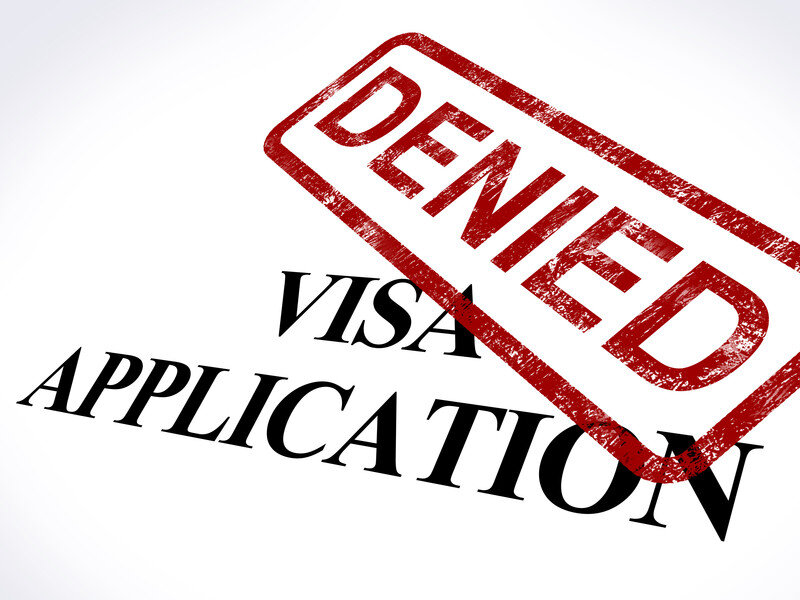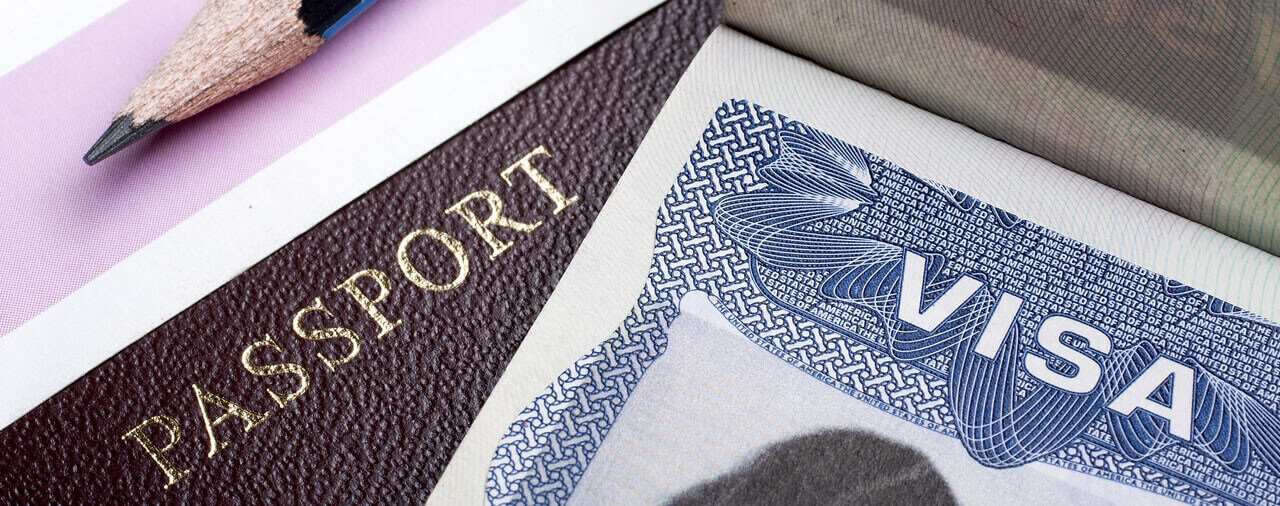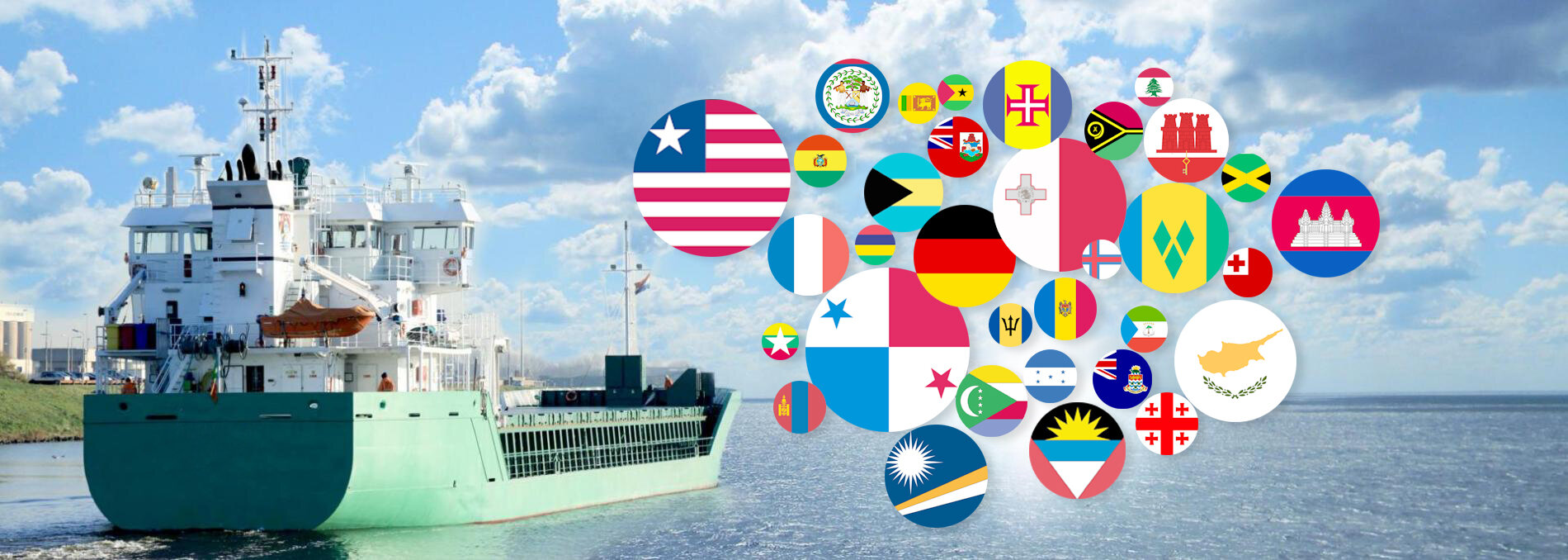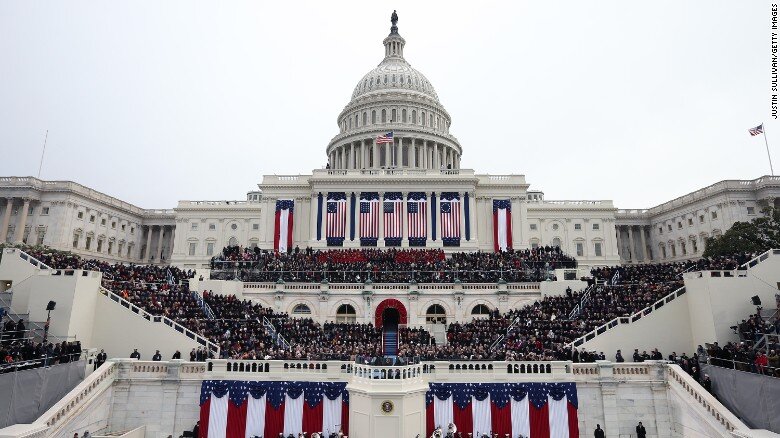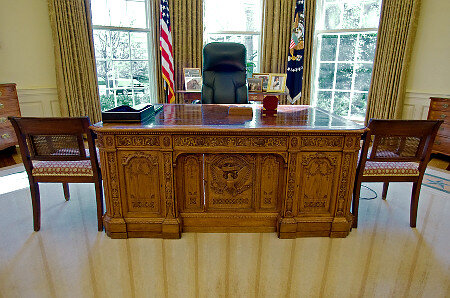Why Is State Department Hiding Data That Will Confirm What It Says Its Doing?
Title IV Explanation Letter- A Shot Across The Bow
Title IV Determination Letter- Been Hit And Taking On Water
More than one year ago, the Trump Administration, using a robust high-level marketing presentation, made operational Title III and further implemented Title IV of the Cuban Liberty and Democratic Solidarity Act of 1996 (known as “Libertad Act”).
However, arbitrarily and absent of legal basis, the United States Department of State has refused (including through the use of the Freedom of Information Act) to divulge data relating to Title IV letters sent during the Trump Administration, Obama Administration, Bush Administration and Clinton Administration. There are approximately twenty-five Title IV letters sent since 1996.
From United States Department of State: “We appreciate your interest in the Department’s policies toward Cuba and in companies dealing in expropriated properties. Unfortunately, we are unable to share information about specific Title IV enforcement actions, including the number of Title IV letters. We can say we have dozens of cases open and under investigation. When the Department makes a determination, the corporate officers subject to visa and entry restrictions are notified, but we cannot provide any more detail than that.” 10 February 2020
The Clinton Administration, Bush Administration and Obama Administration similarly refused requests to provide data relating to issuance of Title IV letters.
Title III authorizes lawsuits in United States District Courts against companies and individuals who are using a certified claim or non-certified claim where the owner of the certified claim or non-certified claim has not received compensation from the Republic of Cuba or from a third-party who is using (“trafficking”) the asset. To date, twenty-five lawsuits have been filed.
Title IV restricts entry into the United States by individuals who have connectivity to unresolved certified claims or non-certified claims. Since 1996, three companies have confirmed receiving Title IV letters; other companies have been reported by media and by parties to filed Title III lawsuits as having received Title IV letters.
Given the Trump Administration’s decision to permit the use of the Libertad Act, and continuing efforts to promote its use of the Libertad Act, nonsensical for the United States Department of State to not want to publicize what previous presidencies did not publicize.
There are no statutes preventing the United States Department of State from providing data- the number of Title IV letters sent during each presidency; the number of countries where recipients of Title IV letters are located; the number of individuals sanctioned using Title IV; the number of Title IV letter recipients who having received a Title IV letter, sought and received dispensation from the United States Department of State; and the number of recipients who, after receiving a Title IV letter, ceased “trafficking” as defined by the Libertad Act.
There is value to current plaintiffs and defendants and to potential plaintiffs and defendants from having data from which they weigh the value of their lawsuit, the value of filing a lawsuit, the value of seeking a settlement, and the value of seeking a Title IV letter.
There are two (2) types of Title IV letters. The first is explorational- the United States Department of State writes it has received information about a possible violation(s) of Title III and requests from the recipient information to refute the information. The second is determinational- the United States Department of State writes it believes the violation of Title III to be true and unless “trafficking” ceases, within forty-five days senior-level executives and their immediate family members will be denied entry to the United States until the violation is correct.
One Title IV letter may impact more than one individual- members of board of directors, individuals and families with significant ownership may also be subject to visa restrictions.
Those who request the United States department of State to send a Title IV letter are not necessarily informed by the United States Department of State that a Title IV letter has been sent on their behalf.
The Trump Administration is believed to have issued more Title IV letters than previous presidencies- perhaps more than all previous presidencies combined.
In July 1996, the first Title IV letter was sent (and confirmed by the company) to Toronto, Canada-based Sherritt International Corporation (2019 revenues approximately US$400 million). In August 1996, the second Title IV letter was sent (although not confirmed by the company) to Monterrey, Mexico-based Grupo Domos. The same year (although not confirmed by the company) Mexico City, Mexico-based CEMEX S.A.B. de C.V. (2019 revenues approximately US$13.1 billion) received a Title IV letter. In November 1997, Tel Aviv, Israel-based Grupo B.M. confirmed receipt of a Title IV letter.
In October 2019, Mr. Gabriel Escarrer, Founder and CEO of Palma, Spain-based Melia Hotels International S.A. (2019 revenues approximately US$2 billion), confirmed receipt of a Title IV letter; Mr. Escarrer and members of his immediate family are now restricted from entering the United States. According to the Associated Press (AP): “The European Union's ambassador to Cuba, Alberto Navarro, said he was aware of 14 members of Meliá’s board and their families being subject to U.S. sanctions.” Melia Hotels International S.A. has been listed as a defendant in one Title III lawsuit and the company reported in a statement it believes more than 50 other companies have received similar notifications. However, according to the AP, “[t]he Spanish government said it was aware of only Meliá having been targeted by the State Department, not any other Spanish companies.”
TITLE IV--SEC. 401. EXCLUSION FROM THE UNITED STATES OF ALIENS WHO HAVE CONFISCATED PROPERTY OF UNITED STATES NATIONALS OR WHO TRAFFIC IN SUCH PROPERTY.
(a) Grounds for Exclusion.--The Secretary of State shall deny a visa to, and the Attorney General shall exclude from the United States, any alien who the Secretary of State determines is a person who, after the date of the enactment of this Act-- (1) has confiscated, or has directed or overseen the confiscation of, property a claim to which is owned by a United States national, or converts or has converted for personal gain confiscated property, a claim to which is owned by a United States national; (2) traffics in confiscated property, a claim to which is owned by a United States national; (3) is a corporate officer, principal, or shareholder with a controlling interest of an entity which has been involved in the confiscation of property or trafficking in confiscated property, a claim to which is owned by a United States national; or (4) is a spouse, minor child, or agent of a person excludable under paragraph (1), (2), or (3).
UNITED STATES: DEPARTMENT OF STATE STANDARD LANGUAGE TITLE IV DETERMINATION LETTER ON DENYING VISAS UNDER THE HELMS-BURTON A [1996]
“Letter of notification to corporate officer or principal of company trafficking in confiscated U.S.-claimed property as defined in the Helms-Burton Act; the letter states that such officer or principal and his or her agents and immediate family members are excludable from the United States unless he or she withdraws from such position as officer or principal; such officer or principal is offered an opportunity to provide exonerating information to the Office of Cuban Affairs of the U.S. Department of State
Date:
Name:
Title:
Company:
Address:
Dear:
The Department of State has determined that COMPANY (and SUBSIDIARY- optional language) is trafficking in confiscated U.S.-claimed property as defined under Title IV of the Cuban Liberty and Democratic Solidarity (Libertad) Act…”
SUPPLEMENTARY INFORMATION:
Department of State Guidelines for Implementation of Title IV of the LIBERTAD Act
1. Purpose and Authority. These guidelines will be used by the Department of State (``Department'') for the purpose of implementing Title IV of the Cuban Liberty and Democratic Solidarity Act of 1996, P.L. 104-114, 22 U.S.C. Sec. 6021 et seq., also known as the Libertad Act or Helms-Burton Act (``Act''), and other applicable legislation as appropriate.
2. Delegation of Authority. The Secretary of State has delegated authority to the Assistant Secretary of State for Inter-American Affairs to make determinations of excludability and visa ineligibility under section 401(a) of the Act.
3. Point of Contact. The Office of Cuban Affairs in the Bureau of Inter-American Affairs at the Department is the central point of contact for all inquiries about implementation of Title IV of the Act. The Office may be contacted in Room No. 3244, U.S. Department of State, Washington, DC 20520; telephone number 202-647-7505.
4. Collection of Information-- a. As resources permit, the Department may collect information from available sources on whether property in Cuba owned by a U.S. national has been confiscated or whether trafficking in such property confiscated from a U.S. national has occurred.
b. If the Department has information indicating that certain property may have been confiscated or subject to trafficking, it may request the Foreign Claims Settlement Commission (FCSC) to inform it whether the property in question was the subject of an FCSC-certified claim. the Department may also obtain information from the FCSC and other available sources about the current ownership of an FCSC-certified claim, including whether it is owned by a U.S. national.
c. For non-certified claims, the Department may request claimants to provide additional information related to ownership and confiscation of, or trafficking in, the property concerned.
d. The department will consult as appropriate with other agencies of the U.S. government and other sources regarding the identify of principals, officers, and controlling shareholders, and their agents, spouses, and minor children, or entities that may have confiscated property owned by a U.S. national or trafficked in such property.
5. Determinations of excludability and Ineligibility. Determinations of ineligibility and excludability under Title IV will be made when facts or circumstances exist that would lead the Department reasonably to conclude that a person has engaged in confiscation or trafficking after March 12, 1996.
6. Prior Notification.--a. An alien who may be the subject of a determination under Title IV will be sent notification by registered mail that his/her name will be entered in the visa lookout system and port of entry exclusion system, and that he/she will be denied a visa upon application or have his/her visa revoked, 45 days after the date of the notification letter. the alien will be informed that divesting from a ``trafficking'' arrangement would avert the exclusion. the Department may inform the government of the alien's country of nationality in confidence through diplomatic channels of the name of any corporation or other entity related to this action.
b. If no information is received within the 45 day period above that leads the Department reasonably to conclude (i) that the alien or company involved has not engaged in trafficking or is no longer doing so, or (ii) that an exception to trafficking under section 401(b)(2)(B) applies, the Department will notify consular officers and the Immigration and Naturalization Service (``INS'') of a determination by entering the alien's name, including the names of the alien's agents, spouse and minor children, if applicable, in the appropriate lookout system, and a visa application from the named alien will be denied or a visa revoked in accordance with the law. Entry of the named alien into the appropriate lookout systems will be the exclusive means by which consular officers and the INS will verify that the alien has been determined to be excludable under section 401 of the Act.
7. Exemptions. The Department may grant an exemption for diplomatic and consular personnel of foreign governments, and representatives to and officials of international organizations. An alien may request from the Department an exemption for medical reasons or for purposes of litigation of an action under Title III of the Act to the extent permitted under section 401(c) of the Act. The Department will notify Department consular officers and the INS through appropriate channels of the decision to grant an exemption to a person otherwise excludable under Title IV of the Act. The Department may impose appropriate conditions on any exemption granted.
8. Review of Determinations. The Department may review a determination made under Title IV at any time, as appropriate, upon the receipt of information indicating that the determination was in error, that a person has ended all involvement with confiscated U.S. property in Cuba, that an exception applies under section 401(b)(2)(B), or that an exemption should be granted under section 401(c).
9. Definitions.--a. ``Agent'' means a person who acts on behalf of a corporate officer, principal, or shareholder with a controlling interest to carry out or facilitate acts or policies that result in a determination under section 401(a) of the Act.
b. ``Confiscate'' means the same as the term defined in section 401(b)(1) of the Act.
c. ``Corporate officer'' means the president, chief executive officer, principal financial officer, principal accounting officer (or, if there is not accounting officer, the controller), any vice president of the entity in charge of a principal business unit, division or function (such as sales, administration or finance), or any other officer or person who performs policy-making functions for the entity. Corporate officers of a parent or subsidiary of the entity may be deemed corporate officers of the entity if they perform policy-making functions for the entity. (This definition is derived from, and will in general be applied consistent with, the definition of ``officer'' in 17 CFR Sec. 240.16a-1(f)).
d. ``Minor child'' means a person who is under 18 years of age and who is a child as defined in 8 U.S.C. Sec. 1101(b)(1).
e. ``Person'' means the same as the term defined in section 4(11) of the Act.
f. ``Principal'' means: (i) When the entity is a general partnership, any general partner and any officer or employee of the general partnership who performs a policy-making function for the partnership, (ii) when the entity is a limited partnership, any general partner and any officer or employee of a general partner of the limited partnership who performs a policy-making function for the limited partnership, (iii) when the entity is a trust, any trustee and any officer or employee of the trustee who performs a policy-making function for the trust, and (iv) any other person who performs similar policy-making functions for the entity. (This definition is derived from, and will in general be applied consistent with, the definition of ``officer'' in 17 CFR Sec. 240.16a-1(f).)
g. ``Shareholder with a controlling interest'' means a person possessing the power, directly or indirectly, to direct or cause the direction of the management and policies of the entity through the ownership of voting securities. (This definition is derived from, and will in general be applied consistent with, the definition of ``control'' in 17 CFR Sec. 230.405.)
h. ``Traffics'' means the same as the term defined in section 401(b)(2) of the Act.
i. ``Transactions and uses of property incident to lawful travel in Cuba'' are such incidental transactions and uses of confiscated property as are necessary to the conduct of lawful travel to Cuba.
10. Persons with Business Dealings with Persons Subject to a Determination. It is not sufficient in itself for a determination under section 401(a) that a person has merely had business dealings with a person for whom a determination is made under section 401(a).
11. Confidentiality of Records. Department records pertaining to the issuance or denial of a visa under section 401(a), including records related to the determination of ineligibility or excludability, are confidential consistent with section 222(f) of the Immigration and Nationality Act, 8 U.S.C. 1202(f).
12. No Right of Action. Nothing in these guidelines will create any right or benefit, substantive or procedural, enforceable by a party against the United States, its agencies or instrumentalities, its officers or its employees, or any other person.
13. Publication and Revision of these Guidelines. These guidelines will be published in the Federal Register, and will become effective upon publication. Revisions may be made as appropriate and published in the Federal Register.
Dated: June 12, 1996. Jeffrey Davidow, Acting Assistant Secretary of State for Inter-American Affairs, Department of State. [FR Doc. 96-15406 Filed 6-14-96; 8:45 am]
Libertad Act
The Trump Administration has made operational Title III and further implemented Title IV of the Cuban Liberty and Democratic Solidarity Act of 1996 (known as “Libertad Act”).
Title III authorizes lawsuits in United States District Courts against companies and individuals who are using a certified claim or non-certified claim where the owner of the certified claim or non-certified claim has not received compensation from the Republic of Cuba or from a third-party who is using (“trafficking”) the asset.
Title IV restricts entry into the United States by individuals who have connectivity to unresolved certified claims or non-certified claims. One Canada-based company is currently subject to this provision based upon a certified claim.
Suspension History
Title III has been suspended every six months since the Libertad Act was enacted in 1996- by President William J. Clinton, President George W. Bush, President Barack H. Obama and President Donald J. Trump.
On 16 January 2019, The Honorable Mike Pompeo, United States Secretary of State, reported a suspension for forty-five (45) days.
On 4 March 2019, Secretary Pompeo reported a suspension for thirty (30) days.
On 3 April 2019, Secretary Pompeo reported a further suspension for fourteen (14) days through 1 May 2019.
On 17 April 2019, the Trump Administration reported that it would no longer suspend Title III.
On 2 May 2019 certified claimants and non-certified claimants were permitted to file lawsuits in United States courts.
Certified Claims Background
There are 8,821 claims of which 5,913 awards valued at US$1,902,202,284.95 were certified by the USFCSC and have not been resolved for nearing sixty years (some assets were officially confiscated in the 1960’s, some in the 1970’s and some in the 1990’s. The USFCSC permitted simple interest (not compound interest) of 6% per annum (approximately US$114,132,137.10); with the approximate current value of the 5,913 certified claims US$8,521,866,236.75.
The first asset to be expropriated by the Republic of Cuba was an oil refinery in 1960 owned by White Plains, New York-based Texaco, Inc., now a subsidiary of San Ramon, California-based Chevron Corporation (USFCSC: CU-1331/CU-1332/CU-1333 valued at US$56,196,422.73).
The largest certified claim (Cuban Electric Company) valued at US$267,568,413.62 is controlled by Boca Raton, Florida-based Office Depot, Inc. The second-largest certified claim (International Telephone and Telegraph Co, ITT as Trustee, Starwood Hotels & Resorts Worldwide, Inc.) valued at US$181,808,794.14 is controlled by Bethesda, Maryland-based Marriott International; the certified claim also includes land adjacent to the Jose Marti International Airport in Havana, Republic of Cuba. The smallest certified claim is by Sara W. Fishman in the amount of US$1.00 with reference to the Cuban-Venezuelan Oil Voting Trust.
The two (2) largest certified claims total US$449,377,207.76, representing 24% of the total value of the certified claims. Thirty (30) certified claimants hold 56% of the total value of the certified claims. This concentration of value creates an efficient pathway towards a settlement.
The ITT Corporation Agreement
In July 1997, then-New York City, New York-based ITT Corporation and then-Amsterdam, the Netherlands-based STET International Netherlands N.V. signed an agreement whereby STET International Netherlands N.V. would pay approximately US$25 million to ITT Corporation for a ten-year right (after which the agreement could be renewed and was renewed) to use assets (telephone facilities and telephone equipment) within the Republic of Cuba upon which ITT Corporation has a certified claim valued at approximately US$130.8 million. ETECSA, which is now wholly-owned by the government of the Republic of Cuba, was a joint venture controlled by the Ministry of Information and Communications of the Republic of Cuba within which Amsterdam, the Netherlands-based Telecom Italia International N.V. (formerly Stet International Netherlands N.V.), a subsidiary of Rome, Italy-based Telecom Italia S.p.A. was a shareholder. Telecom Italia S.p.A., was at one time a subsidiary of Ivrea, Italy-based Olivetti S.p.A. The second-largest certified claim (International Telephone and Telegraph Co, ITT as Trustee, Starwood Hotels & Resorts Worldwide, Inc.) valued at US$181,808,794.14 is controlled by Bethesda, Maryland-based Marriott International.
What Is “Trafficking” According To Libertad Act?
(13) Traffics.--(A) As used in title III, and except as provided in subparagraph (B), a person "traffics" in confiscated property if that person knowingly and intentionally-- (i) sells, transfers, distributes, dispenses, brokers, manages, or otherwise disposes of confiscated property, or purchases, leases, receives, possesses, obtains control of, manages, uses, or otherwise acquires or holds an interest in confiscated property, (ii) engages in a commercial activity using or otherwise benefiting from confiscated property, or (iii) causes, directs, participates in, or profits from, trafficking (as described in clause (i) or (ii)) by another person, or otherwise engages in trafficking (as described in clause (i) or (ii)) through another person, without the authorization of any United States national who holds a claim to the property.
(B) The term "traffics" does not include-- (i) the delivery of international telecommunication signals to Cuba; (ii) the trading or holding of securities publicly traded or held, unless the trading is with or by a person determined by the Secretary of the Treasury to be a specially designated national; (iii) transactions and uses of property incident to lawful travel to Cuba, to the extent that such transactions and uses of property are necessary to the conduct of such travel; or (iv) transactions and uses of property by a person who is both a citizen of Cuba and a resident of Cuba, and who is not an official of the Cuban Government or the ruling political party in Cuba.
“DETERMINATION OF OWNERSHIP OF CLAIMS REFERRED BY DISTRICT COURTS OF THE UNITED STATES
"Sec. 514. Notwithstanding any other provision of this Act and only for purposes of section 302 of the Cuban Liberty and Democratic Solidarity (LIBERTAD) Act of 1996, a United State district court, for fact-finding purposes, may refer to the Commission, and the Commission may determine, questions of the amount and ownership of a claim by a United States national (as defined in section 4 of the Cuban Liberty and Democratic Solidarity (LIBERTAD) Act of 1996), resulting from the confiscation of property by the Government of Cuba described in section 503(a), whether or not the United States national qualified as a national of the United States (as defined in section 502(1)) at the time of the action by the Government of Cuba.”
TITLE III--SEC. 302. LIABILITY FOR TRAFFICKING IN CONFISCATED PROPERTY CLAIMED BY UNITED STATES NATIONALS.
(a) Civil Remedy.-- (1) Liability for trafficking.--(A) Except as otherwise provided in this section, any person that, after the end of the 3-month period beginning on the effective date of this title, traffics in property which was confiscated by the Cuban Government on or after January 1, 1959, shall be liable to any United States national who owns the claim to such property for money damages in an amount equal to the sum of-- (i) the amount which is the greater of-- (I) the amount, if any, certified to the claimant by the Foreign Claims Settlement Commission under the International Claims Settlement Act of 1949, plus interest; (II) the amount determined under section 303(a)(2), plus interest; or (III) the fair market value of that property, calculated as being either the current value of the property, or the value of the property when confiscated plus interest, whichever is greater; and (ii) court costs and reasonable attorneys' fees. (B) Interest under subparagraph (A)(i) shall be at the rate set forth in section 1961 of title 28, United States Code, computed by the court from the date of confiscation of the property involved to the date on which the action is brought under this subsection.
(2) Presumption in favor of the certified claims.--There shall be a presumption that the amount for which a person is liable under clause (i) of paragraph (1)(A) is the amount that is certified as described in subclause (I) of that clause. The presumption shall be rebuttable by clear and convincing evidence that the amount described in subclause (II) or (III) of that clause is the appropriate amount of liability under that clause.
(3) Increased liability.-- (A) Any person that traffics in confiscated property for which liability is incurred under paragraph (1) shall, if a United States national owns a claim with respect to that property which was certified by the Foreign Claims Settlement Commission under title V of the International Claims Settlement Act of 1949, be liable for damages computed in accordance with subparagraph (C).
(B) If the claimant in an action under this subsection (other than a United States national to whom subparagraph (A) applies) provides, after the end of the 3-month period described in paragraph (1) notice to-- (i) a person against whom the action is to be initiated, or (ii) a person who is to be joined as a defendant in the action, at least 30 days before initiating the action or joining such person as a defendant, as the case may be, and that person, after the end of the 30- day period beginning on the date the notice is provided, traffics in the confiscated property that is the subject of the action, then that person shall be liable to that claimant for damages computed in accordance with subparagraph (C).
(C) Damages for which a person is liable under subparagraph (A) or subparagraph (B) are money damages in an amount equal to the sum of-- (i) the amount determined under paragraph (1)(A)(ii), and (ii) 3 times the amount determined applicable under paragraph (1)(A)(i). (D) Notice to a person under subparagraph (B)-- (i) shall be in writing; (ii) shall be posted by certified mail or personally delivered to the person; and (iii) shall contain-- (I) a statement of intention to commence the action under this section or to join the person as a defendant (as the case may be), together with the reasons therefor; (II) a demand that the unlawful trafficking in the claimant's property cease immediately; and (III) a copy of the summary statement published under paragraph (8). (4) Applicability.--(A) Except as otherwise provided in this paragraph, actions may be brought under paragraph (1) with respect to property confiscated before, on, or after the date of the enactment of this Act.
(B) In the case of property confiscated before the date of the enactment of this Act, a United States national may not bring an action under this section on a claim to the confiscated property unless such national acquires ownership of the claim before such date of enactment. (C) In the case of property confiscated on or after the date of the enactment of this Act, a United States national who, after the property is confiscated, acquires ownership of a claim to the property by assignment for value, may not bring an action on the claim under this section.
(5) Treatment of certain actions.--(A) In the case of a United States national who was eligible to file a claim with the Foreign Claims Settlement Commission under title V of the International Claims Settlement Act of 1949 but did not so file the claim, that United States national may not bring an action on that claim under this section. (B) In the case of any action brought under this section by a United States national whose underlying claim in the action was timely filed with the Foreign Claims Settlement Commission under title V of the International Claims Settlement Act of 1949 but was denied by the Commission, the court shall accept the findings of the Commission on the claim as conclusive in the action under this section.
(C) A United States national, other than a United States national bringing an action under this section on a claim certified under title V of the International Claims Settlement Act of 1949, may not bring an action on a claim under this section before the end of the 2-year period beginning on the date of the enactment of this Act.
(D) An interest in property for which a United States national has a claim certified under title V of the International Claims Settlement Act of 1949 may not be the subject of a claim in an action under this section by any other person. Any person bringing an action under this section whose claim has not been so certified shall have the burden of establishing for the court that the interest in property that is the subject of the claim is not the subject of a claim so certified. (6) Inapplicability of act of state doctrine. No court of the United States shall decline, based upon the act of state doctrine, to make a determination on the merits in an action brought under paragraph (1).
(7) Licenses not required. (A) Notwithstanding any other provision of law, an action under this section may be brought and may be settled, and a judgment rendered in such action may be enforced, without obtaining any license or other permission from any agency of the United States, except that this paragraph shall not apply to the execution of a judgment against, or the settlement of actions involving, property blocked under the authorities of section 5(b) of the Trading with the Enemy Act that were being exercised on July 1, 1977, as a result of a national emergency declared by the President before such date, and are being exercised on the date of the enactment of this Act.
LINK To Complete Analysis In PDF Format



















